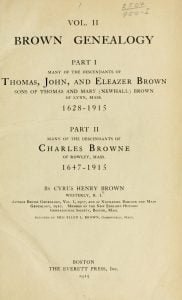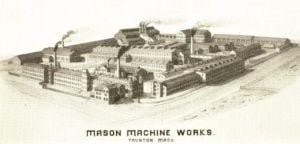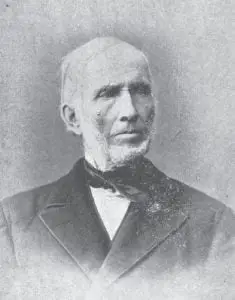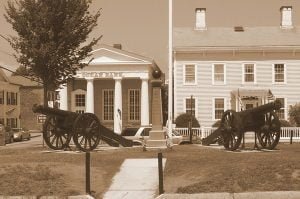Descendants of Thomas, John and Eleazor Brown
Cyrus Henry Brown’s Brown Genealogy, first published in 1907, is an essential resource for genealogists tracing the Brown family lineage. This volume, published in 1915 and labeled as “Volume II,” should be understood as a complete replacement of the original volume rather than a supplementary addition. Brown’s new research and updates make this work a standalone resource for those exploring the Brown family’s extensive history. It is fully indexed, and the content spans nearly 250 years, offering valuable insight into numerous branches of the family.





